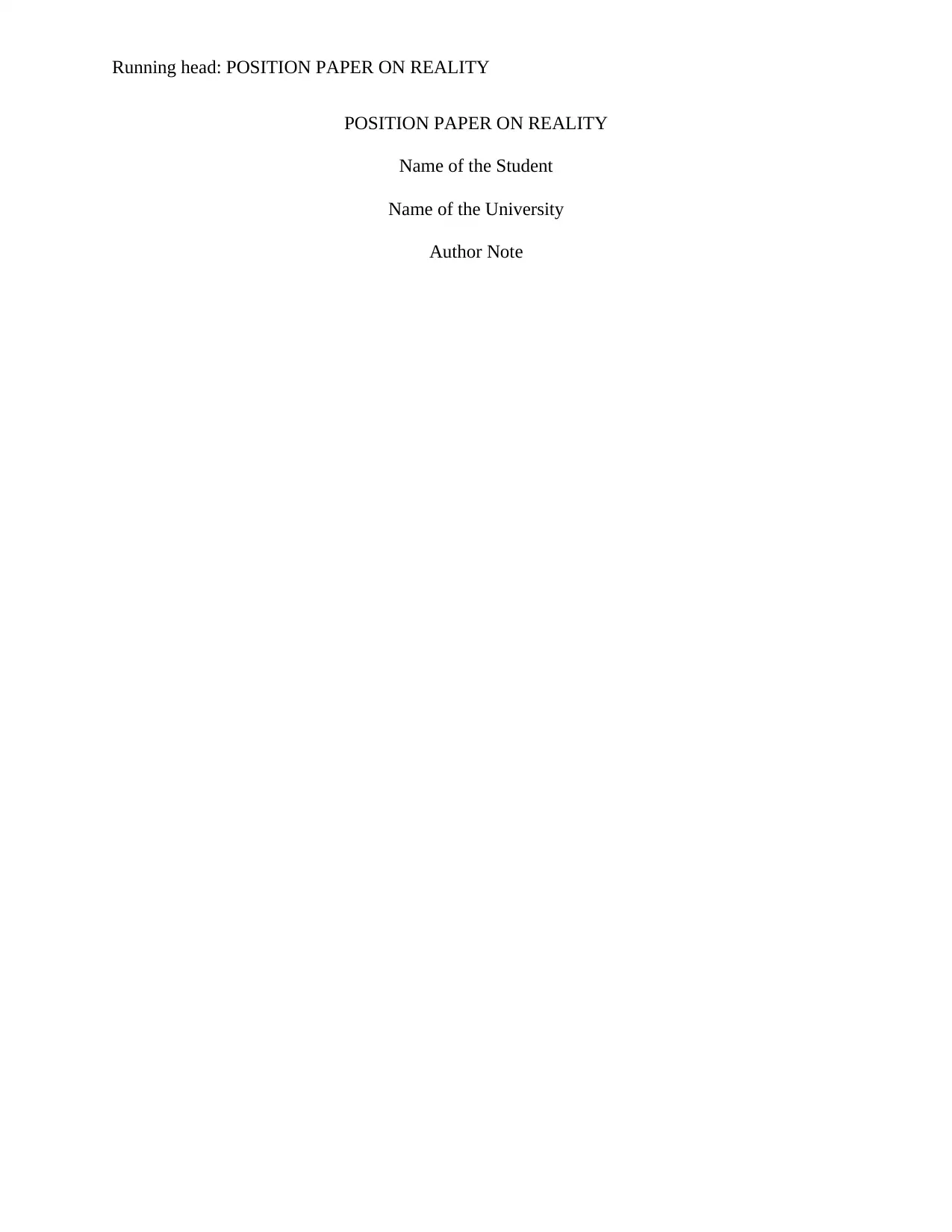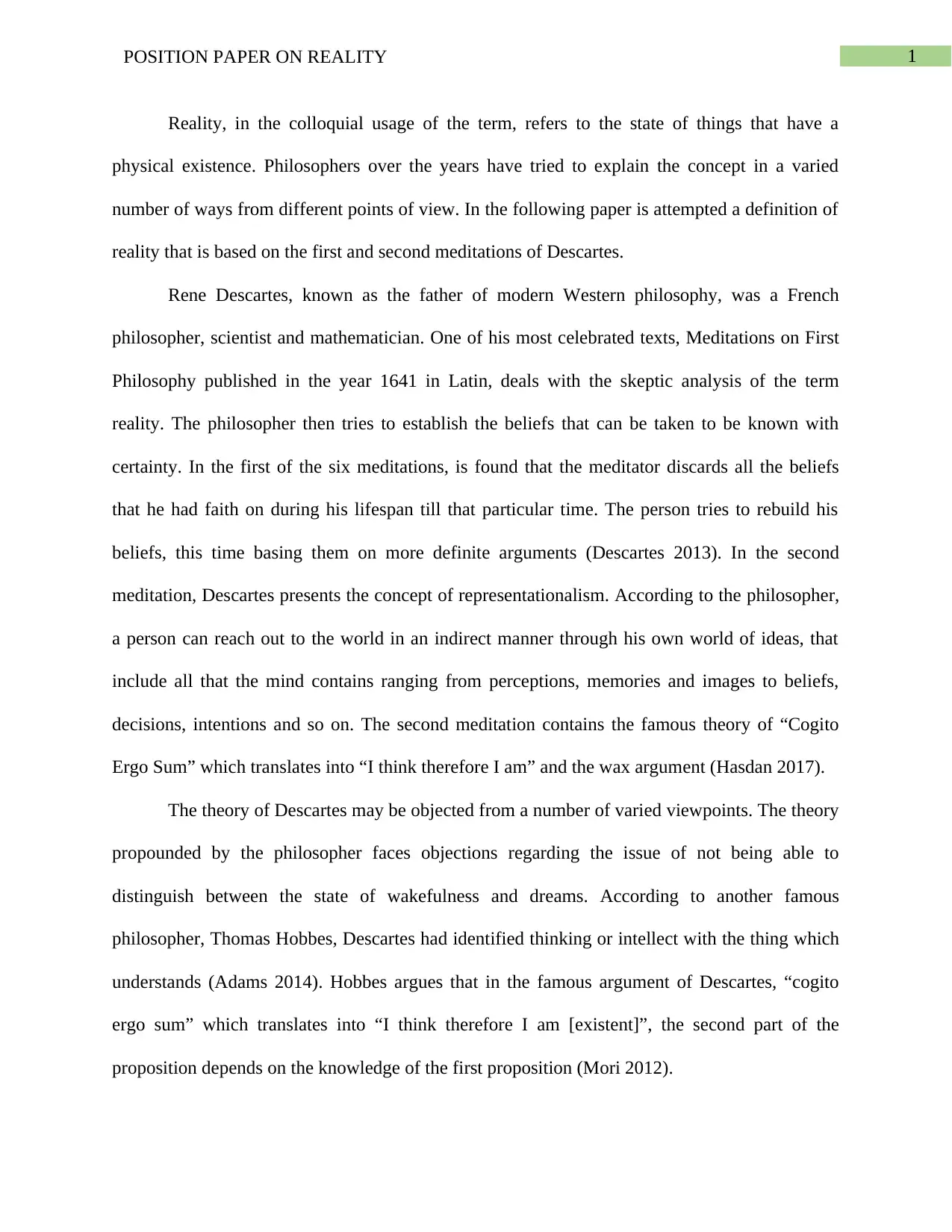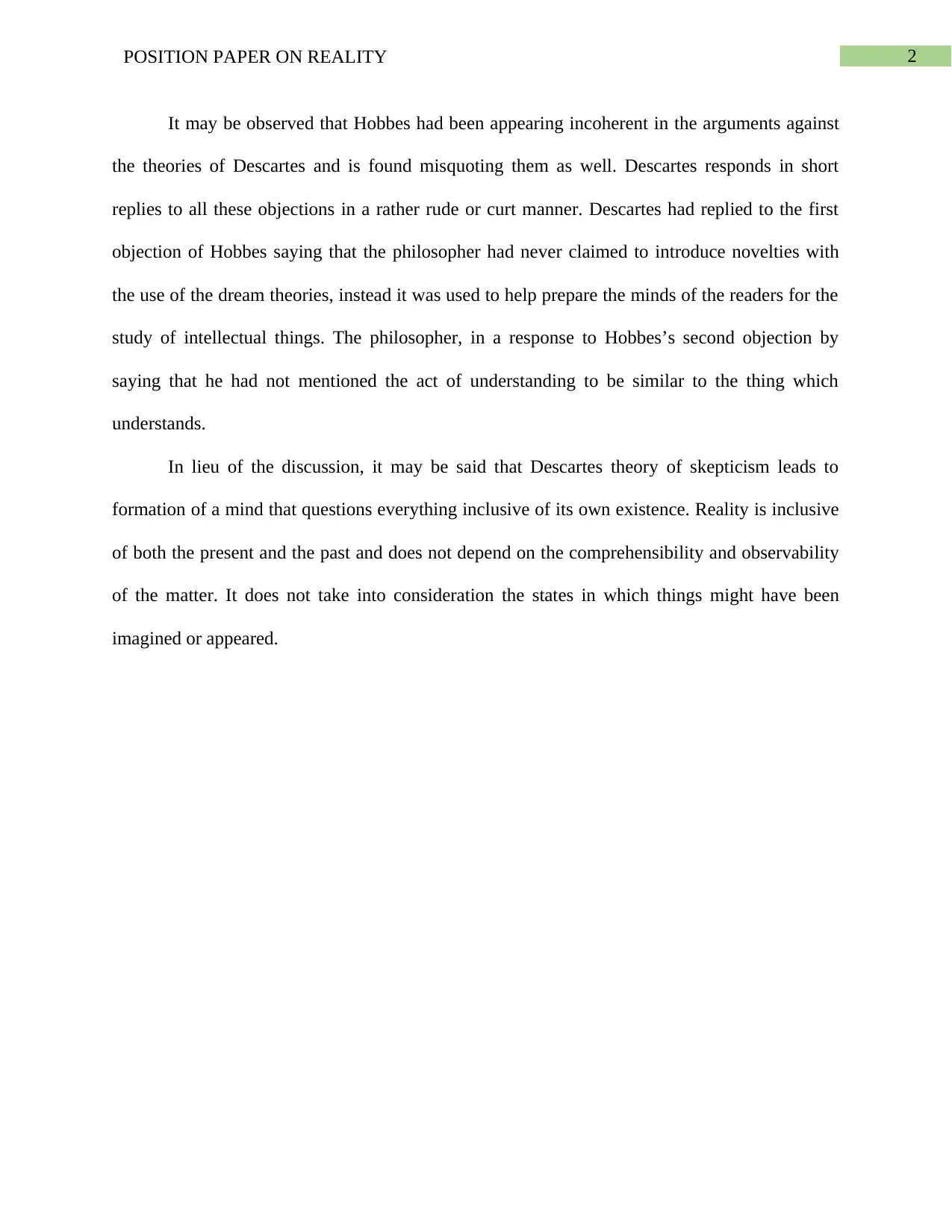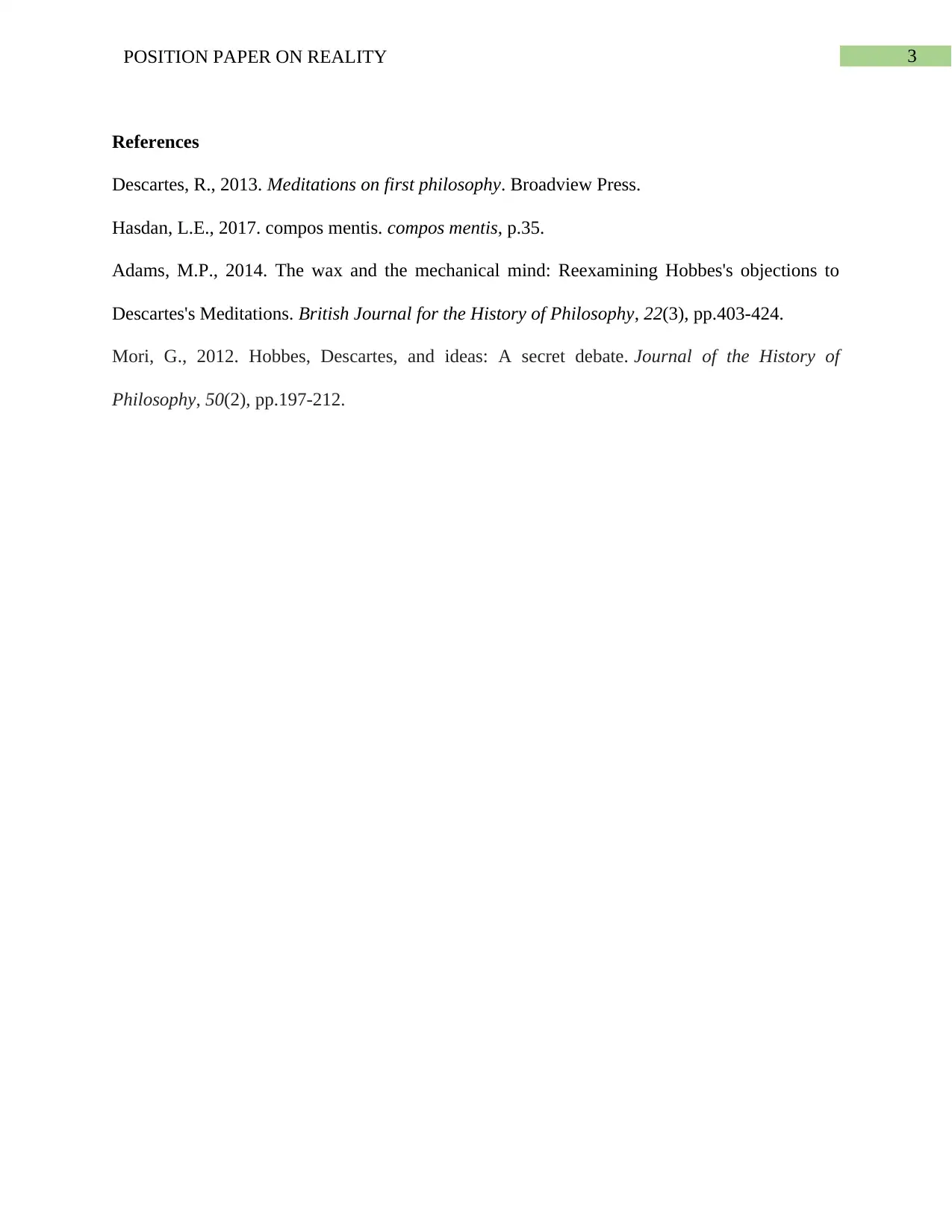Exploring Reality: Insights from Descartes' Meditations
VerifiedAdded on 2020/05/04
|4
|707
|475
AI Summary
The position paper addresses the concept of reality, traditionally defined by physical existence. It focuses on Rene Descartes' interpretations from the first and second meditations of his work, 'Meditations on First Philosophy.' Descartes, a pivotal figure in Western philosophy, examines skepticism to question previously held beliefs and reconstruct them based on certainty. The paper highlights Descartes' concept of representationalism, where reality is accessed indirectly through ideas formed by the mind, encompassing perceptions, memories, and more. This leads to the famous assertion 'Cogito Ergo Sum' (I think, therefore I am). However, Descartes' theories face objections, notably from Thomas Hobbes, who critiques the distinction between wakefulness and dreams, and the conflation of intellect with understanding. Despite such criticisms, including misquotations by Hobbes, Descartes defends his views, emphasizing that skepticism aids in preparing for intellectual inquiry without claiming novelty through dream theories. Ultimately, the paper concludes that Descartes' skepticism fosters a questioning mind about existence itself, defining reality as encompassing both present and past, beyond mere comprehensibility or observability.
1 out of 4









![[object Object]](/_next/static/media/star-bottom.7253800d.svg)